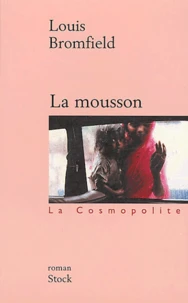"Early Autumn" by Louis Bromfield is a Pulitzer Prize-winning American novel that masterfully explores the complexities of family, tradition, and social change. Set in the fictional town of Durham, Massachusetts, during the 1920s, the story centers on the Pentland family, a once-powerful clan whose influence is waning amidst shifting American values and the rise of modernity. At the heart of the narrative is Olivia Pentland, a woman of intelligence and strength, who struggles to hold her family together while navigating the tensions between old money and new ambitions.
The novel delves into the inner lives of the Pentlands, revealing generational conflicts, unspoken desires, and the quiet desperation that often accompanies privilege. Bromfields keen observation of social dynamics and his nuanced portrayal of characters bring depth to this family saga, making it a compelling study of aristocracy in decline and the search for meaning in a changing world. Through vivid descriptions and subtle irony, Bromfield captures the essence of New England society, where tradition clashes with modernity and the past looms large over the present.
The novel is celebrated for its psychological insight and its evocative depiction of the American landscape. It appeals to readers interested in literary fiction, classic literature, and stories of generational conflict and transformation.
"Early Autumn" by Louis Bromfield is a Pulitzer Prize-winning American novel that masterfully explores the complexities of family, tradition, and social change. Set in the fictional town of Durham, Massachusetts, during the 1920s, the story centers on the Pentland family, a once-powerful clan whose influence is waning amidst shifting American values and the rise of modernity. At the heart of the narrative is Olivia Pentland, a woman of intelligence and strength, who struggles to hold her family together while navigating the tensions between old money and new ambitions.
The novel delves into the inner lives of the Pentlands, revealing generational conflicts, unspoken desires, and the quiet desperation that often accompanies privilege. Bromfields keen observation of social dynamics and his nuanced portrayal of characters bring depth to this family saga, making it a compelling study of aristocracy in decline and the search for meaning in a changing world. Through vivid descriptions and subtle irony, Bromfield captures the essence of New England society, where tradition clashes with modernity and the past looms large over the present.
The novel is celebrated for its psychological insight and its evocative depiction of the American landscape. It appeals to readers interested in literary fiction, classic literature, and stories of generational conflict and transformation.
